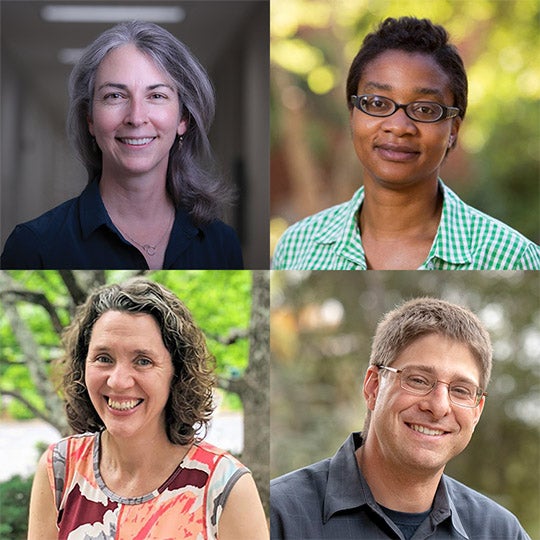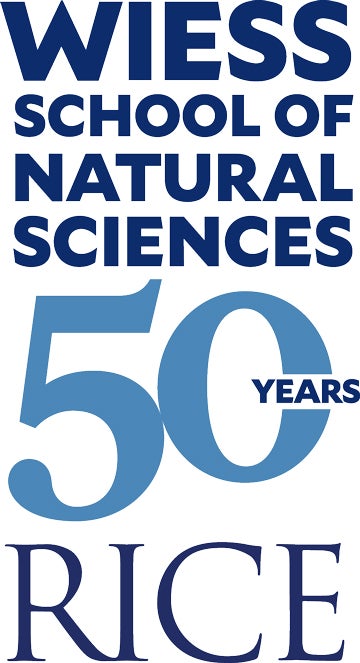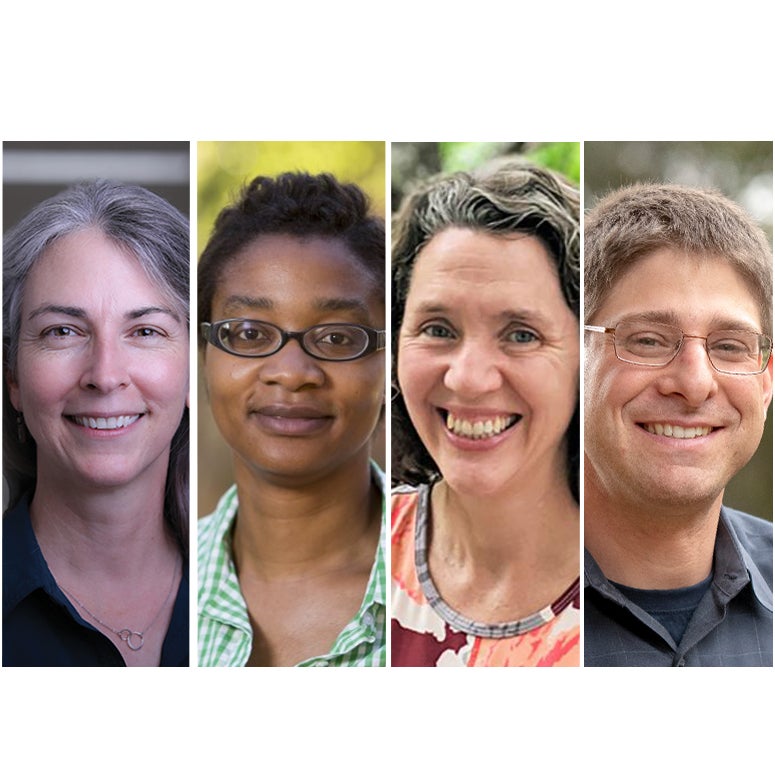Undergraduate research has long been a cornerstone of the Natural Sciences experience, equipping students with the skills and confidence to excel in their academic and professional journeys — and the experience can be life-changing. It certainly was for four 1997 graduates who went on to successful academic careers in evolutionary biology after working together in the same lab as undergraduates.

“It’s really quite unusual. I’ve not otherwise heard of so many undergraduates from one cohort in one lab at any university advancing to faculty positions in evolutionary biology,” said Stanford’s Noah Rosenberg, a member of the professorial quartet that includes Emily Duval of Florida State, Vanessa Ezenwa of Yale and Nicole Gerardo of Emory. This remarkable outcome underscores the unique power of Rice’s approach to undergraduate education and research.
They got their first taste of scientific research in the laboratory of former Rice faculty members David Queller and Joan Strassmann, whose jointly run lab focused at the time on the evolution of social behavior in insects.
For Ezenwa, participating in undergraduate research opened her eyes to the human effort behind scientific breakthroughs. “I learned that behind every ‘fact’ in a biology textbook is a person who found something interesting, asked a question about it, and then answered it. I was hooked by the idea that I could also contribute to generating new knowledge about how the world works,” she said.
The similarity in career paths and success could be an improbable coincidence. But Ezenwa, Gerardo and Rosenberg cited similar parts of their Rice undergraduate research experience as having a significant impact on their individual choices and success.
For example, Natural Sciences fosters a collaborative environment where undergraduates are treated as integral members of research teams. Rosenberg said being treated as a “respected colleague” by Joan and Dave was meaningful, and Ezenwa said she still recalls what it meant to be granted the freedom to co-develop research plans and engage in the trial-and-error process of scientific discovery. “For me,” she said, “being given agency over what I did and how I did it made me feel like I had a valuable contribution to make.”

Gerardo echoed the sentiment, reflecting on how the balance of guidance and independence shaped her approach to mentoring students in her own lab. “With trainees in your lab, you can be a mentor and key part of their support network, or you can be an advisor, just telling them what to do,” she said. “Because I have seen the value of having one, through Joan, I choose to be a mentor.”
For these alumni, the mentorship they received continues to influence how they lead their own research groups. Ezenwa said she strives to emulate the enthusiasm, commitment to life-long mentoring and “excellent balance of guidance and independence” she experienced at Rice. Rosenberg also described how he mirrors the thoughtful guidance he received. “I try to develop undergraduate mathematical biology research projects so that even in the first few weeks, the undergraduate can experience the joy of making significant progress.”
Rice’s dedication to providing transformative research opportunities for undergraduates is a defining feature of the School of Natural Sciences. More than three-quarters of Rice Natural Sciences’ students engage in research during their undergraduate years, benefitting from personalized guidance and a vibrant culture of discovery.
As these four alumni demonstrate, the impact of undergraduate research extends far beyond the lab — it shapes how students contribute to their fields and mentor the next generation of scientists.

